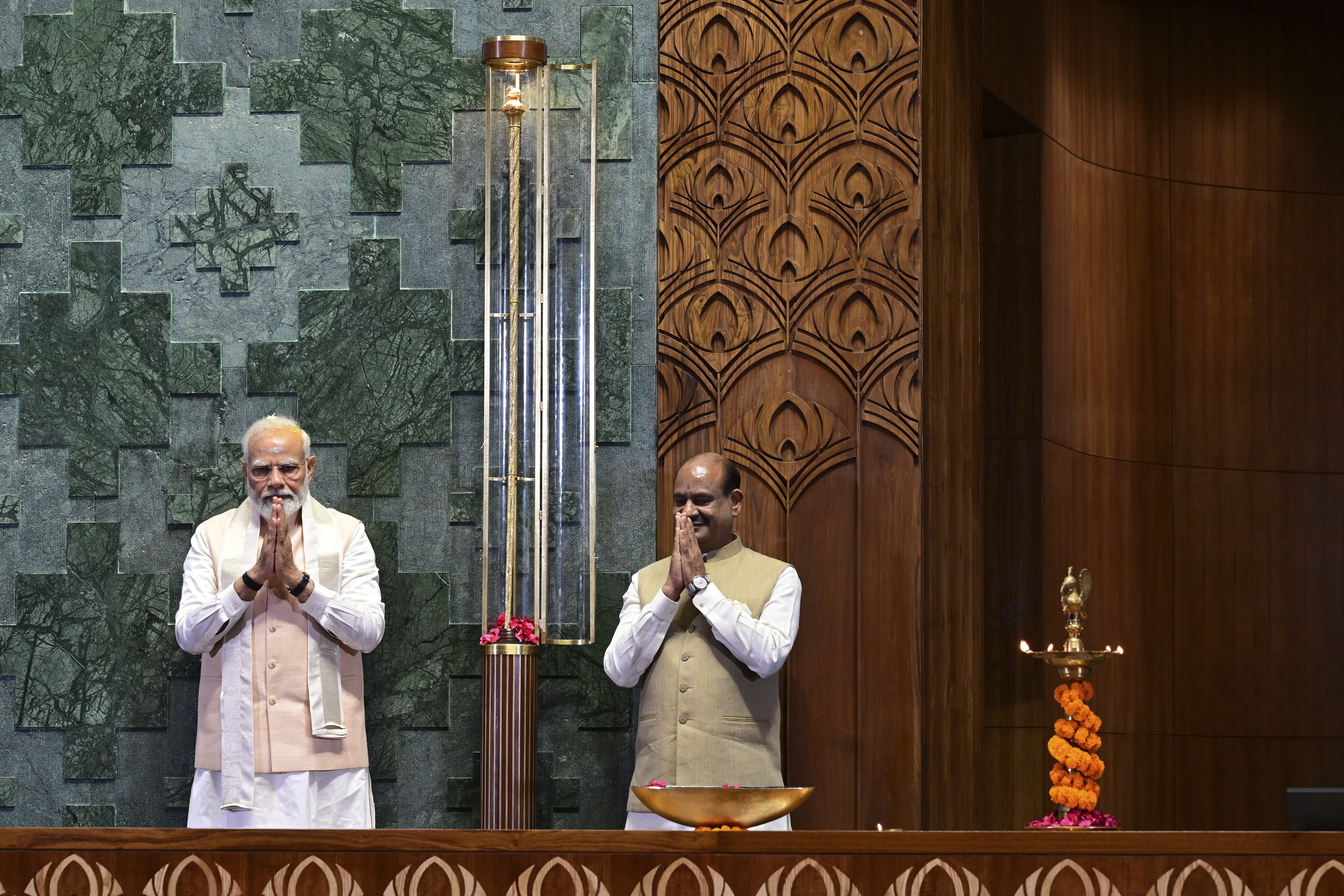Prime Minister Narendra Modi gave a signal of continuity when he constituted his cabinet after the Lok Sabha elections results. Modi even retained the portfolios of the key ministers signalling that not much has changed from the previous term despite the BJP not getting full majority.
As the challenge for the government will now be to get its candidate elected as the Speaker of the Lok Sabha, Modi government may again signal continuity by getting a BJP MP elected as the Speaker. Will it be giving a second term to Om Birla, the third time MP from Kota, Rajasthan? The BJP had earlier given only one term to 71-year-old Sumitra Mahajan (now 81), who was Speaker from 2014 to 2019. Birla will turn 62 in November.
The BJP is yet to disclose the name of candidate for the Speaker’s post as discussions were on within the NDA grouping. Sources indicated Birla was still the frontrunner. If Birla got elected, he stands a chance of becoming the second person to hold the post in two full terms. Congress’s Balram Jhakhar was the longest serving Lok Sabha speaker with two terms lasting nearly 10 years in office till 1989. The Speakers who retained their posts in subsequent Lok Sabhas were M.A. Ayyangar, G.S. Dhillon, and G.M.C. Balayogi, but with lesser tenure than Jhakhar.
What may also tip the scales in Birla’s favour is the fact that he belonged to the Hindi heartland state, Rajasthan, the party’s core vote-bank region. Prime Minister Narendra Modi will propose the name of Lok Sabha speaker on June 26, which will be seconded by the NDA allies.
Defence Minister Rajnath Singh has been tasked with bringing the allies around to the BJP’s point of view while engaging in dialogue. The focus is on consensus. Singh’s role as a trouble shooter in the NDA alliance has become stronger since the BJP dropped below the majority mark. He had held meeting with the NDA allies at his residence on Tuesday to resolve the issue.
Apart from Birla, several names were doing the round for the post of Speaker: D Purendeshwari, Bhartuhari Mahtab, both had come to BJP from other parties; Radha Mohan Singh, a seven-time BJP MP, and Mahtab. As the Modi government had picked up two-term MP, Birla, as the Speaker in 2019, it was clear that seniority was not the only criteria.
The issue of electing a Speaker had become important as the BJP had to rely on allies to get majority. The TDP and the JDU, being the two main allies in the NDA grouping, hold the power to influence BJP’s decision, but not to veto. The JDU has publicly stated that it will support the BJP’s choice for the Speaker, while the TDP has maintained silence while pushing for a consensus candidate. The TDP is wary of Speaker’s choice as the incumbent has the power to decide in case of split in the parties. In 2019, a month after the Lok Sabha and assembly polls in Andhra Pradesh, four of the TDP’s Rajya Sabha MPs had switched sides to join the BJP. A year before that Chandrababu Naidu had walked out of the NDA.
Traditionally, the Lok Sabha Speaker has been picked up through consensus. Opposition has been demanding the post of Deputy Speaker; they indicated they will force for a contest for the post of Speaker. The last Lok Sabha did not have a Deputy Speaker. In order to arrive at consensus, there were suggestions that the BJP could offer the Deputy Speaker’s post to its ally.
Before electing the Speaker, picking up a pro-term Speaker also becomes important as he would not only administer oath to all the newly elected MP including Prime Minister but also preside over the election of next Speaker.
According to rules, the pro-term speaker is picked up from a list of senior MPs prepared by the Lok Sabha Secretariat and submitted to parliamentary affairs minister, who then suggests a name to the President for oath. After the oath is administered to the pro-term Speaker by the President, he presides over the oath taking proceedings of the newly elected members and election of new Speaker.
K. Suresh of the Congress is the longest serving MP in the current Lok Sabha with eight terms. His name is doing the rounds for pro-term Speaker. In 2014, Kamal Nath was picked up as the pro-term Speaker as he was a nine times MP. In 2019, BJP’s Virendra Kumar was appointed pro-term speaker even though he had seven terms as MP, while Maneka Gandhi had eight terms.
Given the number game and the opposition’s plan to force an election, the role of the pro-term Speaker has become important. This will play on the government’s mind even when they suggest the name of a senior member for the pro-term Speaker. Mahtab and Radha Mohan can be considered for this post, since they are the senior most MPs with both having seven terms each.
The Modi government would like to begin its third term with a message that it still wields control despite the BJP falling short of majority. As the new parliament is set to witness a stronger opposition, the BJP would like to retain the upper hand with its own Speaker.



